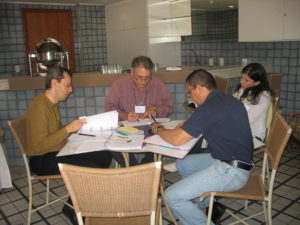Skat was mandated by GTZ and CETESB to carry out an assessment of the institutional capacities of local and national organizations with the objective of recommending the most suited ones to become the network’s secretariat.
Country:
Brazil
Project Period:
2008
Name of Client:
GIZ
Description of the Project:
Under the framework of the Environmental Promotion Project (PROEMA) supported by the German Agency for Technical Cooperation (GTZ) in Brazil, the Latin-American Network for the Prevention and Control of Soil and Water Pollution (RELASC) was created as an initiative of the Brazilian Environmental Ministry and the Environment Secretary of the State of Sao Paulo (CETESB).
During the inception phase (October 2007- June 2009), the network was expected to become a sustainable mechanism for regional and national knowledge sharing and a platform for international technical cooperation on the topic of solid waste and water pollution. Regarding this, there was a need to assure the operational and organizational management of the network by setting up a secretariat which had experience and knowledge of the network’s subject matter and capacities for communication and network management.
Skat was mandated by GTZ and CETESB to carry out an assessment of the institutional capacities of local and national organizations with the objective of recommending the most suited ones to become the network’s secretariat. A total of 13 institutions were evaluated based on five criteria: institutional structure, experience with knowledge and network management, wide experience in the network subject matter, i.e. projects and services. Based on such evaluation, important conclusions were drawn: the organizations which were better suited for the role of network secretariat were those which are not only working on the thematic area of the network, but which also have a wide range of experience with knowledge management and network management. Both aspects need to work hand in hand to provide the necessary conceptual and methodological support to the network. Additionally, it was recommended to include all those organizations with a solid institutional structure: personnel, infrastructure, partnerships and financial stability. Finally, since the RELASC is a regional network, all those organizations with international projects, mainly in other Latin American countries, were considered in the shortlist.




